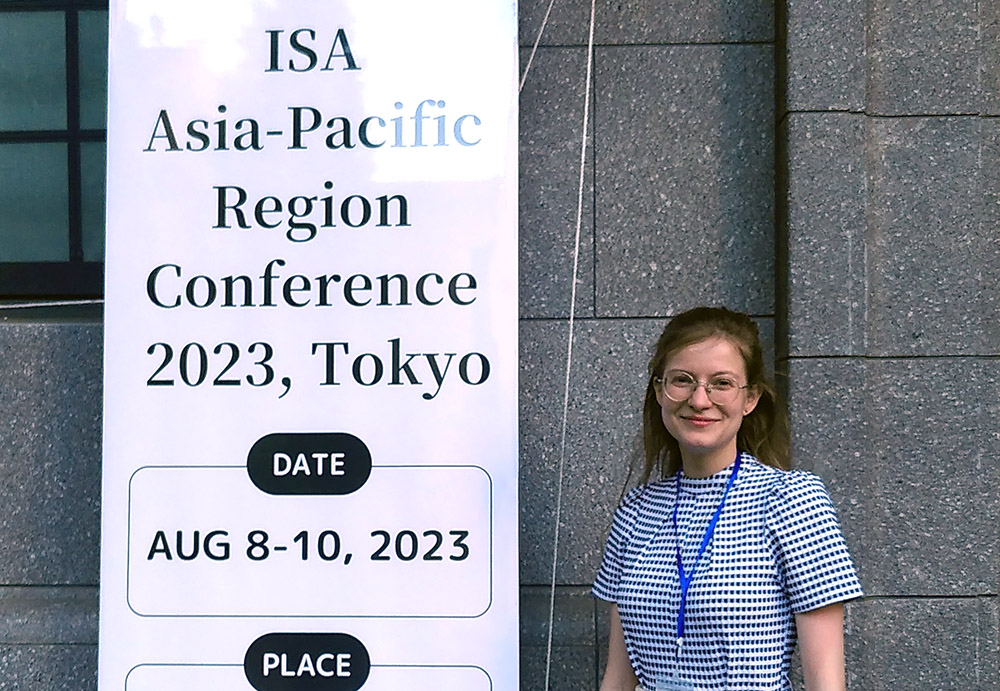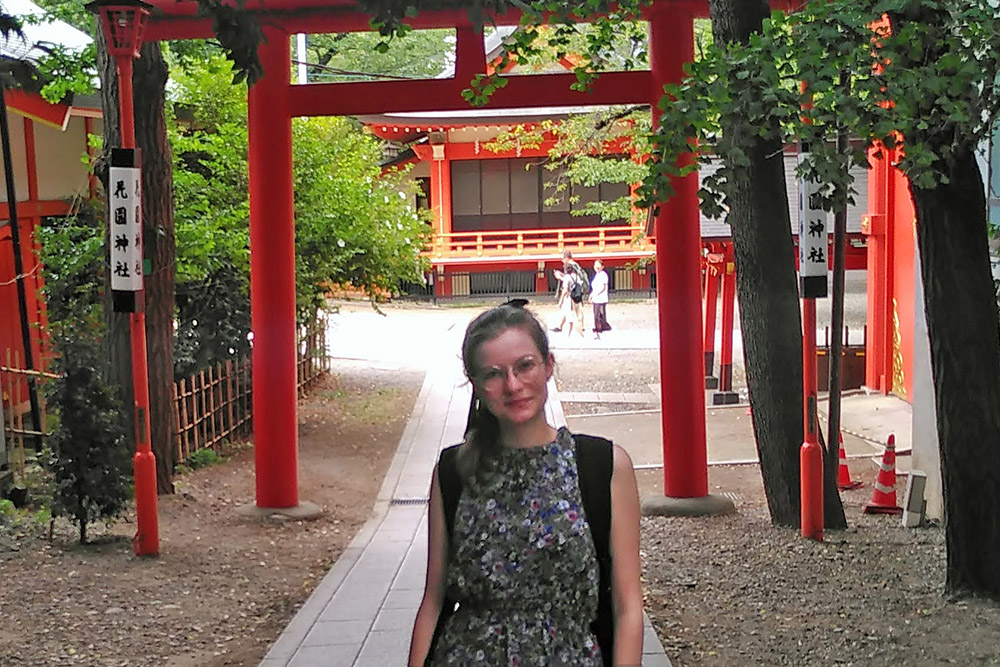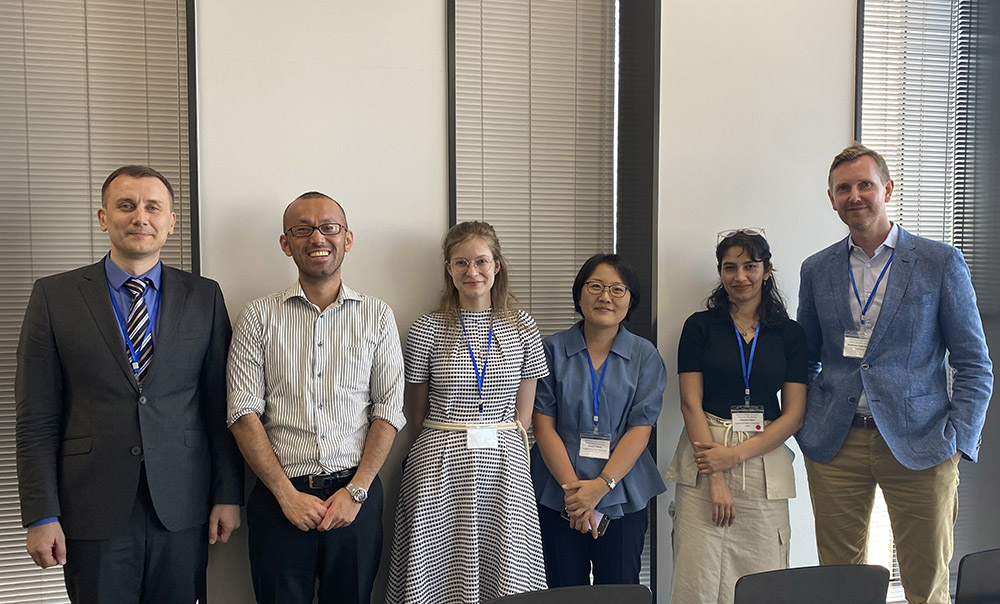
Kina Kunz describes speaking at the conference as "an important milestone on my path as an up-and-coming scholar."
Conducting research can be akin to embarking on a voyage into uncharted waters – a cause for excitement, driven by curiosity and not uncommonly a source of apprehension as well.
This has certainly been my experience with my PhD research into Japan and South Korea’s decision-making in response to the rise of China – I am analysing how their responses differ, and what factors best explain the cause of the divergences in their behaviour.
In August, this research led me on a literal journey to East Asia as well as the aforementioned metaphorical one. With the support of the Asia New Zealand Foundation, I travelled to Tokyo on a two-fold mission: to conduct follow-up research to supplement previous fieldwork, and to present the current state of my research at a conference at Waseda University.
Thus, I spent one portion of my sojourn in Japan rekindling connections with academics I had interviewed over the span of three months during fieldwork last year. These reunions offered the chance to revisit previous conversations, ask follow-up questions, and plug holes in my research.
The other portion was focused on the ISA Asia-Pacific conference, where I was able to build connections with, and learn from, other academics in addition to the nerve-wracking experience of presenting my findings to a wider audience for the first time.
The former provided valuable puzzle pieces for my research; the latter represented an important milestone on my path as an up-and-coming scholar. However, a reward overarching both of these is that such in-person explorations create a bridge from academia’s ivory towers to the real world.
The trials and tribulations of language acquisition offer up a poignant analogy. Language learners can try to create an immersive environment at home by finding listening and reading content in their target language. However, most will agree that it is not the same as actually going to where your target language is spoken.
I began to study Japanese (in addition to Korean) two years ago with the hope that it would improve the quality of my research.

Between research and the conference, Kina found some time to take in some of the sights of Tokyo
I have been making an effort to consume Japanese media and interact with language exchange partners, although a portion of my studies still revolves around memorisation of Kanji and wrapping my head around grammatical concepts. However, using my limited Japanese in Japan is of course a whole different ball game. Suddenly, every street sign, every interaction, became an opportunity to practice and refine my language skills.
This transition from theory to practice is not exclusive to language learning. In the realm of academia, ideas often remain confined within the pages of books and the walls of classrooms.
Just like visiting Tokyo provided me with opportunities to apply and improve my Japanese language skills, it did the same for my research into Japan’s foreign policy. Travelling provides the chance to take concepts off the page and into the living, breathing world, and also to confront the limitations of one's own knowledge – something that is quite inevitable when struggling (and sometimes failing) to communicate in a new language.
This bridging of theory and reality is particularly vivid during events like the ISA Asia-Pacific Conference. I was able to listen to eminent scholars speak at the conference, put faces to the names in my literature review, and chat with people whose works have significantly influenced my research. Suddenly the academic world was no longer confined to ink and paper but expanded into three-dimensional space and took on life.
These real-world connections are particularly important because we should not expect to understand any region, much less one as vast and diverse as Asia, only through the pages of books and second-hand accounts.
In the realm of international relations, including with Area Studies, complex real-world dynamics often challenge theoretical generalisations. In-person experiences help us to get a grasp of the prevailing mood on the ground. I was able to gauge reception to my research and receive valuable feedback on how to effectively present my findings.

Kina: " ...ideas are polished and refined when they are forged by the collective hammering of multiple minds."
This trip also provided many opportunities to escape academic isolation and build connections with others with similar interests.
The collaborative environment at the ISA Asia-Pacific Conference facilitated engagement with other conference attendees as well as my fellow panellist and our audience.
The initially nerve-wracking experience of presenting my findings before a wider audience led to an invaluable realisation— ideas are polished and refined when they are forged by the collective hammering of multiple minds.
My Tokyo trip allowed me to break out of scholarly seclusion into the real world. I am reminded that the research process isn't just about compiling data and navigating a labyrinth of theories—it's about opening oneself to the world, embracing the complexities, and forging connections that breathe life into academic pursuit.
My time in Japan has been more than just a sequence of academic activities; it has been a vivid reminder of the interplay between theory and reality, and how traversing both realms enriches not only research but also one's own growth as a scholar and a global citizen.
The Foundation's research programme commissions studies that support informed public conversations about New Zealand’s relationship with Asia. We also support the next generation of scholars through our postgraduate research grants.
Our research grants support contemporary and forward-thinking postgraduate and academic research projects or programmes relating to Asia with grants of up to $3000.


